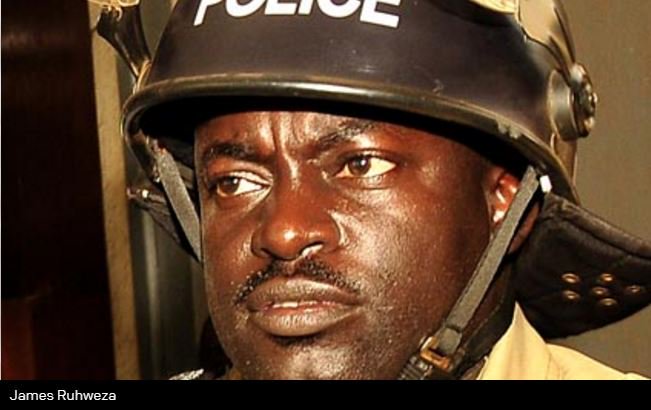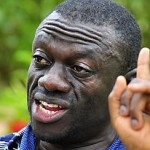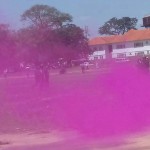The Operations Commander of Kampala Metropolitan Police Assistant Commissioner Police (ACP) James Akiki Ruhweza has today testified against his juniors in a case involving the beating of Forum for Democratic Change (FDC) strongman Dr Kizza Besigye’s supporters by police, following the latter’s release from Luzira prison on bail.
ACP Ruhweza, the second principal witness, first narrated the retinue which the police followed to escort Besigye to his home in Kasangati before pinning Assistant Superintendent of Police (ASP) Moses Nanoka, the District Police Commander of Wandegeya, and Police Constable Robert Wanzala of the Central Police Station in Kampala for some operational blunders.
Mr Ruhweza was testifying in an inquiry ordered by the IGP General Kale Kayihura, in regard to accusations of misconduct leveled against several police officers, who were reportedly involved in the wanton July 12 beatings that have since portrayed the police in negative light.
“I briefed all the DPCs of Wandegeya, CPS, Kira Road, FFU commander Kampala, and Tactical Support Unit commander, and told them that they should keep law and order as they escort Besigye to his home,” ACP Ruhweza told the police administrative court presided over by Senior Commissioner of Police (SCP) Denis Odongpiny.
Ruhweza added: “I asked DPC Aaron Baguma to get me three officers to escort me and the vehicle which he did and one of those officers was PC Wanzala.”
According to Ruhweza, during the procession he was called by ACP (Jonathan) Baroza, who told him that some of the police officers in the procession were engaged in the beating up of civilians.
“I then called Aaron (Baguma) and told him to share instructions that there should not be any beating of civilians,” Ruhweza told the court, adding that he did not give any junior officer instructions and was not aware of whatever transpired in front or behind his car. Further, he said, his main duty that day was to engage the driver of the car in which Besigye was, to make sure he keeps driving towards the intended destination.
The third principal witness, Corporal Mark Opolot of the Police Standards Unit (PSU) told the court that he had watched the footage of a news bulletin on NTV, and saw his colleagues beat up civilians.
Opolot, who is attached to Kira Police barracks, said that was totally unprofessional and that the image of the police was tarnished to the extent that he even felt shy to identify himself as a police officer due to the public opinion.
Prosecutor, Detective Senior Superintendent of Police (D/SSP) Katherine Kusemererwa said the main purpose of the last two witnesses, Ruhweza and Opolot, was to identify the errant officers who took part in the beating and also know how their misconduct affected the image of the police in the eyes of the public.
The chairperson SCP Odongpiny adjourned the court to Thursday August 11, to allow for more time to analyze the presented evidence and help the court determine whether the officers “have a case to answer or not.”
Meanwhile, in a related development Prosecutor Kusemererwa has requested for some more time to present more witnesses for another related case involving SSP Andrew Kagwa, SSP Samuel Bamuzibire, ASP Patrick Muhumuza, police constables Willy Kalyango, Sula Kato, Dennis Muhangi, Mosses Agaba and crime preventer Dan Tandeka, who are charged with beating civilians who were following Dr Besigye’s car along Namasole, Busabala, Najjanankumbi and Entebbe roads on July 13, as he went to the FDC offices in Najjanankumbi. Their case was adjourned to Thursday August 4.







